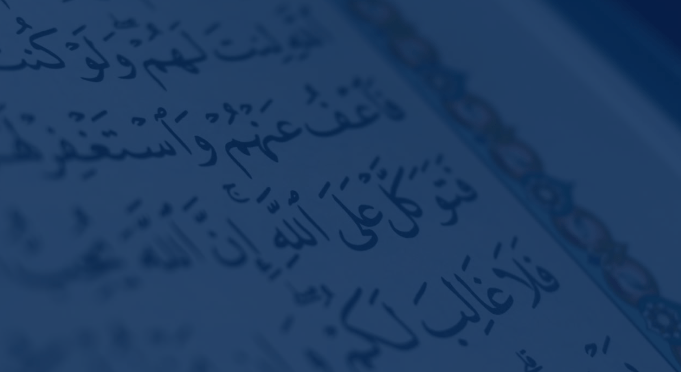
In this article, I will delve into a variety of topics that are both insightful and engaging. We will explore the subjects listed below in detail, offering a comprehensive understanding and in-depth analysis.
Table of Contents
The Solidification of the Islamic Empire and Intellectual Pursuits:
The latter phase of the Islamic era marked the solidification of the Islamic empire, particularly during the Umayyad period. During this time, Muslims began to develop diverse intellectual pursuits. An initial effort was made to formalize the long-standing informal education system, formally establishing elementary education. Elementary schools, or kuttabs, were set up in mosques, stores, and households, where, alongside significant theological principles, other subjects such as arithmetic were also taught.
Advancements in Education During the Abbasid Period:
The Abbasid period showcased significant advancements in Muslim culture and civilization. It is often described as an era of profound cognitive progress. During this period, the Arabs were exposed to Indian sciences, including mathematics, medicine, and astronomy. Efforts to advance higher education were also notable. Professors in madrasas held esteemed positions and commanded respect within society. The inaugural establishment of higher education was “Bayt al-Hikma” (House of Wisdom) in 830 CE, founded by Al-Ma’mun. This was followed by the establishment of numerous other institutes.

Integration of Religious and Secular Education:
Education among Muslims during this period did not exhibit a distinct separation between religious and secular education. Institutions such as Jamia Nizamia and Madrasa Mustansariyah in Baghdad, the University of Qarawiyyin in North Africa, and Al-Azhar in Cairo provided religious and secular instruction. These institutions produced renowned Islamic scholars such as Al-Ghazali, Al-Biruni, and Ibn al-Haytham, who made substantial contributions to Islamic knowledge, science, mathematics, and philosophy.
Contributions of Al-Ghazali:
Al-Ghazali, a prominent Islamic theologian, jurist, and philosopher, made substantial contributions to Islamic education by revitalizing old Islamic disciplines and championing Sunni doctrines. Born in 1058 CE, he is well known for his work “Ihya’ Ulum al-Din” (The Revival of Religious Sciences), which attempted to reconcile Sufism with orthodox Islam. Al-Ghazali’s emphasis on ethical and spiritual education and formal religious instruction established new standards in Islamic academia. He worked as an instructor in notable madrasas in Baghdad and Nishapur, where his lectures inspired generations of intellectuals. His attempts to suppress unconventional viewpoints and promote a comprehensive educational system have left an indelible mark on the Muslim world.
Historical Contributions to Islamic Education
Since the era of the Khulafa-e-Rashidin, Islamic teachings have been disseminated worldwide. Historical accounts for this credit to Khalifa Al-Mu’tasim Billah, who passed away in 289 AH, with constructing an impressive edifice intended for philosophers, containing numerous rooms for students specializing in various sciences and arts. Qazi Athar mentions that Mubarakpuri refers to two sisters from Maghrib-e-Aqsa who founded the first two universities in Islamic history: Fatima al-Fihri, who established the University of Qarawiyyin in 859 CE, and her sister Maryam, who founded Jami’ul Andulus.
Early Madrasas and Their Founders:
According to Qazi Athar Mubarakpuri, the inhabitants of Nishapur were among the first to build a madrasa, with Madrasa-e-Baihaqiyyah constructed in the fourth century of Hijra. While some claim that Nizamul Mulk Tusi founded the first madrasa, Imam Tajuddin Subki states that there were already several madrasas in existence before Nizamul Mulk’s time, including Madrasa-e-Baihaqiyyah, Madrasa Khulafa-e-Rashidun, Madrasa Abu Hafs, and Madrasa Shawafa.
Global Dissemination of Islamic Teachings:
The Caliphs initiated the dissemination of Islamic teachings across Asia, Europe, and Africa, establishing Iran as a hub of knowledge and scientific investigation. Over time, the transmission of education shifted from Iran to India, where Muslims developed a heightened awareness of acquiring knowledge and disseminating Islamic principles.

The Significance of Knowledge in Islamic Civilization:
In his extensive analysis of 26 civilizations spanning 600 years, historian A.J. Toynbee concluded that knowledge holds immense significance within the Islamic faith. He argued that during a time when Europe was engulfed in ignorance, it was Arabia that provided enlightenment to the continent.
The Legacy of Islamic Education in India:
The Muslim rule in India, commencing in the 12th century and persisting until the 19th century, saw the founding of numerous madrasas in different regions. These institutions continued the tradition of blending religious and secular education, contributing to the rich intellectual heritage of the Islamic world.
Conclusion:
Islamic education, from its humble beginnings in informal kuttabs to the construction of prestigious madrasas and colleges, demonstrates a deep devotion to knowledge and intellectual advancement. The Umayyad and Abbasid periods were groundbreaking moments for integrating religious and secular studies, with philosophers like Al-Ghazali establishing a comprehensive educational system. The spread of Islamic ideas across continents and the establishment of institutions under Muslim leadership in India demonstrate Islamic scholarship’s global significance. This enduring legacy emphasizes Islam’s vital contribution to developing worldwide knowledge and civilization.
About the author
Jamil Hussain is a Ph.D. candidate in English Language Teaching at Aligarh Muslim University. He holds an M.Phil. and various postgraduate and undergraduate degrees. Mr. Hussain has presented at international conferences in Sri Lanka and Bangladesh and contributed to numerous national events in India. His work includes seven publications in renowned journals, such as Scopus-indexed and UGC CARE-listed ones. He has completed British Council teacher training and taught 208 hours of spoken English with the Directorate of Education Delhi, Macmillan Education, and the British Council. His research focuses on "Teaching of English as a Second Language at Select Government Senior Secondary Schools of Barak Valley, Assam."

I just read your article and I find it very informative, very inspiring. I would also like to extend an invitation to you to visit my website Lembaga Pendidikan Islam and we can collaborate with each other.
warm regard.